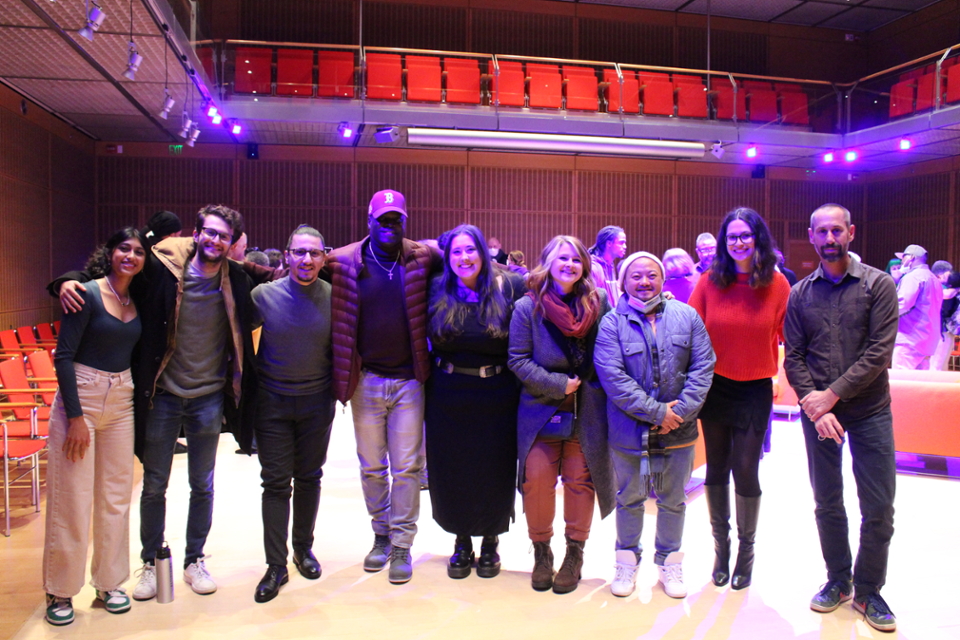Finding Power through Education: John Yang's Journey

Photo Credit: Jana Antic
John Yang, a Partakers Empowerment Program graduate and teaching assistant, talks about his educational journey as an Emerson Prison Initiative graduate, his work with the Emerson Engagement Lab, his experience as a student at Emerson College, and his future plans.
By Jana Antic
As a child, John Yang felt that education came easy to him. He was on the honor roll throughout his time at school, however, when he became involved with the justice system, his educational journey came to a halt. John enrolled in the Emerson Prison Initiative, while incarcerated, to earn a Bachelor of Arts in Media, Literature, and Culture, igniting a love for learning, and since then, he continues to expand his passion through his studies and helping others.
While incarcerated, John learned about EPI, a college-in-prison program offered by Emerson College that allows men incarcerated at the Massachusetts Correctional Institution at Concord to receive a Bachelor of Arts in Media, Literature, and Culture. John was accepted to the program’s first cohort of twenty students. Students were chosen through a rigorous selection process that included in-person interviews and an essay exam graded by a faculty and staff panel.
John admits that, at first, his primary motivation to apply for the program was to receive good time credit. In Massachusetts, an incarcerated person can earn good time credit through satisfactory performance in approved employment or educational programs. There’s a limit of 7.5 days each month, but if you’re part of multiple programs, like John hoped to be when he applied to EPI, you can earn more days that will be deducted from your sentence.
Despite his initial motivation, John soon began looking forward to the program’s courses: “I actually started to enjoy the learning process and being able to go back and learn all these skills like critical thinking and analysis,” he said. “It became more of an experience than I thought it would be. It went from ‘I’m trying to earn good time’ to ‘hey, I’m actually enjoying the fact that I’m learning.”
Not only did EPI help him discover this passion, but it also provided him with the power to understand and communicate his position. “It exposed me to a whole different perspective of life. Before, I was struggling within the system because I didn’t have the language to understand the situations I was in or the language to describe to another person to have them understand why I was in this situation,” he said, “Through learning about power structures and dynamics of social roles, it gave me a better understanding of why my success rate was so low.”
After his release, John continued his studies with EPI, and during this time, Mneesha Gellman, EPI founder and director, introduced him to Partakers. Although hesitant to join at first, John found a community and support system within Partakers. Soon after, Arthur Bembury, executive director of Partakers, asked John if he would be interested in joining the Partakers Empowerment Program’s first cohort.
Looking back at PEP, John recalls the civic engagement workshop as the most memorable. At the end of the workshop, students are asked to research their representatives as homework. To John, this assignment created a call to action for the changes that he wanted to see in his communities: “I never even thought to care about who the city’s mayor is or who the city councilor is, so when that exercise came up, it gave me a chance to realize what’s really happening in the city that I live in, and if I wanted to see change, these were the people I would talk to.”
After completing EPI and earning his degree in August, John decided to continue his studies as a junior at Emerson College. He works with Emerson’s Engagement Lab as a lab assistant and recently has been working on the Transforming Narratives Of Gun Violence Initiative (TNGVI), a partnership between the Engagement Lab, the Center for Gun Violence Prevention at Massachusetts General Hospital, and the Louis D. Brown Peace Institute. TNGVI features stories of those impacted by gun violence through partnered studios in media, arts, and communication. John is also a teaching assistant for BEJI founder Rosalind Kabrhel’s Juvenile Justice course at Brandeis University.
John’s experiences have opened many possibilities for his future—returning to EPI to run the program as an alum, continuing his work with the Engagement Lab or as a teaching assistant, and even working with the Department of Youth Services to address issues that he had seen—but regardless of what he chooses, John hopes to give back to those that have helped him and pay it forward to those who need help.